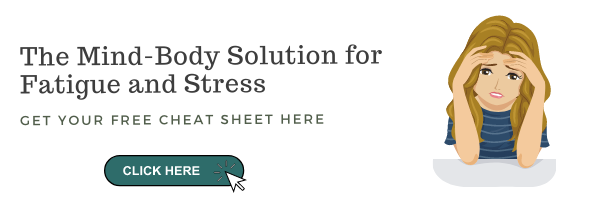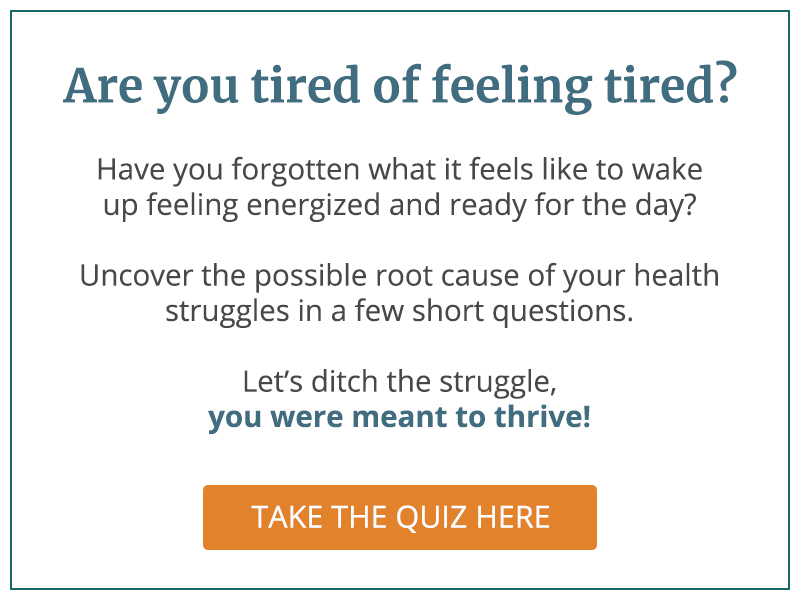As if we didn’t have enough to learn about COVID-19, new evidence is beginning to emerge regarding its effects on the brain.
A recent study from the University College London Hospitals pointed to COVID patients aged 16-85 who experienced delirium, temporary brain dysfunction, strokes, seizures, confusion, inflammation of the brain, and nerve damage. They described a 3-stage process of infection:
Stage 1: The virus damage is limited to the epithelial cells of the nose and mouth
Stage 2: Blood clots can form in the lungs, potentially traveling to the brain and causing a stroke
Stage 3: The virus is able to cross the blood-brain barrier and possibly attack the brain
Researchers are also exploring a link between COVID-19 and a rare, but serious autoimmune brain condition known as Guillain-Barre Syndrome (GBS). GBS presents with severe weakness and can even progress to full paralysis.
I’ve also seen some patients that have been suffering from post-COVID brain issues in my own practice.
Watching my patients with these struggles has led me to contemplate brain health and the field of brain optimization.
Brain optimization is a practice that’s been gaining in popularity over recent years. As we see increased rates of Alzheimer’s, ADHD, migraine, autism spectrum disorders, depression, and anxiety, it’s no wonder that people are looking for alternative ways to help heal common brain-related disorders.
In this article, I’m exploring brain optimization as a treatment as well as simple things you can start doing today to help keep your brain in the best possible shape.
What Is Brain Optimization?
While scientists began researching this branch of medicine well over a century ago, brain optimization has been making its way into the mainstream these days. Brain optimization is a treatment that helps “train” your brain. During a brain optimization session, electroencephalogram (EEG) electrodes are typically placed on the head so your brain activity can be read and interpreted.
Then, in a process called neurofeedback, you engage with a stimulus that changes according to the brainwaves you’re producing. This neurofeedback is designed to provide positive reinforcement and train your brain to create the kinds of brainwaves that produce the results you’re looking for.
Some people pursue brain optimization therapy to help with:
- Traumatic brain injury
- ADHD
- Depression
- Migraine
- Autism spectrum disorders
- Anxiety
- Depression
Others look at brain optimization as a way to improve:
- Sleep
- Creativity
- Stress levels
- Physical performance
Many report even better results from brain optimization when combined with mindfulness and meditation practices.
While clinical studies suggesting brain optimization as a viable treatment for various cognitive disorders are emerging, there’s also plenty of anecdotal evidence to suggest that EEG changes lives.
How To Optimize Brain Function
Brain optimization treatments aside, there are also several things you can do to encourage healthy brain function without a visit to a treatment facility of any sort.
Here’s my list of top recommendations to show your brain some love:
Use it or lose it
Whether it’s playing music, video games, or learning a second language, stimulating your brain with novel, challenging fare makes your brain stronger. Studies suggest bilingual individuals have increased white matter integrity, musicians’ brains are stronger in the areas that control hearing and visuospatial skills, and even gamers have increased cognitive skills.
Diet
You probably know that I’m a huge fan of an anti-inflammatory diet. Eating Mediterranean-style — whole foods, lots of vegetables, fruit, nuts, seeds, beans, legumes, smaller amounts of animal protein, truly whole grains, and plenty of olive oil — is associated with favorable health outcomes all around. Brain health is no exception. Even eating a partial Mediterranean diet meant participants in a study of older people had a 15% lower chance of performing poorly on cognitive tests. Which means you don’t have to be perfect to see the benefits of this way of eating.
Physical exercise
Moving your body daily is not just good for your waistline and heart health — it’s great for your brain, too. Getting plenty of exercise means you can increase your brain function. In as little as 30 minutes. If you’re finding it hard to start an exercise regimen, walking is a great place to start and takes no experience or fancy equipment. Your brain will thank you for it.
Sleep
In our fast-paced world, it may seem strange for me to recommend prioritizing your sleep. But the hustle all day, stay up late and wake up extra early to do it all again mentality is working against your cognitive function (and your immune system, too). Studies show that sleep is crucial for your brain to work at its’ best — so getting those 7-9 hours of shut-eye is a must.
Brain-boosting supplements
In addition to lifestyle recommendations, there are several supplements you can take to help boost brain health as well. In my practice I often recommend:
B vitamins
B vitamins play a crucial role in glucose regulation in the brain, and many people aren’t getting enough of these powerful vitamins. A high-quality B-complex can help keep your brain functioning at its best.
Curcumin 1000 mg twice daily
Curcumin, one of the compounds that makes turmeric so amazing is one of the most revered supplements on the planet and is known for decreasing inflammation. It has been studied as a treatment for a host of neurological diseases, including Alzheimer’s and depression.
N-Acetyl-Cysteine (NAC) 600-1200 mg daily
NAC is a powerful amino acid that scientists believe helps increase levels of glutathione in the body (and brain!) Glutathione is known as the “master antioxidant” and can help keep your brain in its best shape.
Acetyl-L-carnitine 2,000 mg
Acetyl-L-carnitine is known as a neuroprotective and may help with brain energy and glucose metabolism.
Phosphatidylserine 200 and 400 mg
Phosphatidylserine is a fatty substance that can help cognition. Since levels of this phospholipid decrease with age, researchers are looking into it as a potential treatment for Alzheimer’s.
Check out my Get Healthy store for the best prices and highest quality supplements, including these brain boosting favorites.
Brain Health and Integrative Medicine In Austin
Integrative medicine has always placed brain health at the forefront of what we do.
While it’s easy to think about symptoms in terms of blood pressure, blood sugar, and weight — integrative and functional medicine looks at the body as a whole…not just several independent systems working separately.
If you’re experiencing any sort of cognitive symptoms (related to post-COVID infection or not), we’re here to help.
Schedule a free consultation with me here — and I can help you figure out how to get your brain back on track.
References
“Emerging spectrum of COVID-19 neurology: clinical ….” 8 Jul. 2020, https://academic.oup.com/brain/article/doi/10.1093/brain/awaa240/5868408
“Guillain-Barré Syndrome associated with SARS-CoV-2 infection.” https://www.sciencedirect.com/science/article/pii/S2214250920300792.
“Guillain-Barré Syndrome Fact Sheet | National Institute of ….” https://www.ninds.nih.gov/Disorders/Patient-Caregiver-Education/Fact-Sheets/Guillain-Barr%C3%A9-Syndrome-Fact-Sheet.
“Using EEG to Study Cognitive Development: Issues … – NCBI.” 10 Jul. 2012, https://www.ncbi.nlm.nih.gov/pmc/articles/PMC3491357/.
“The clinical use of quantitative EEG in cognitive disorders – NCBI.” https://www.ncbi.nlm.nih.gov/pmc/articles/PMC5618973/.
“Lifelong Bilingualism Maintains White Matter Integrity … – NCBI.” 16 Nov. 2011, https://www.ncbi.nlm.nih.gov/pmc/articles/PMC3259110/.
“Gray Matter Differences Between Musicians and … – PubMed.” https://pubmed.ncbi.nlm.nih.gov/14681175/.
“Neural bases of selective attention in action video … – PubMed.” 15 May. 2012, https://pubmed.ncbi.nlm.nih.gov/21864560/.
“Mediterranean-style diets linked to better brain function in ….” 25 Jul. 2017, https://www.sciencedaily.com/releases/2017/07/170725154208.htm.
“Exercise and the brain: something to chew on – NCBI – NIH.” 6 Apr. 2009, https://www.ncbi.nlm.nih.gov/pmc/articles/PMC2680508/.
“Neurobehavioral Dynamics Following Chronic … – NCBI – NIH.” https://www.ncbi.nlm.nih.gov/pmc/articles/PMC2910531/.
“B Vitamins and the Brain: Mechanisms ….” 28 Jan. 2016, https://www.ncbi.nlm.nih.gov/pmc/articles/PMC4772032/.
“The effect of curcumin (turmeric) on Alzheimer’s … – NCBI.” https://www.ncbi.nlm.nih.gov/pmc/articles/PMC2781139/.
“An Overview of Curcumin in Neurological Disorders – NCBI.” https://www.ncbi.nlm.nih.gov/pmc/articles/PMC2929771/.
“Overview on the Effects of N-Acetylcysteine ….” 13 Dec. 2018, https://www.ncbi.nlm.nih.gov/pmc/articles/PMC6320789/.
“L-Carnitine and acetyl-L-carnitine roles and … – NCBI – NIH.” 16 May. 2017, https://www.ncbi.nlm.nih.gov/pmc/articles/PMC5621476/.
“Phosphatidylserine in the Brain: Metabolism and … – NCBI.” 30 Jun. 2014, https://www.ncbi.nlm.nih.gov/pmc/articles/PMC4258547/.



